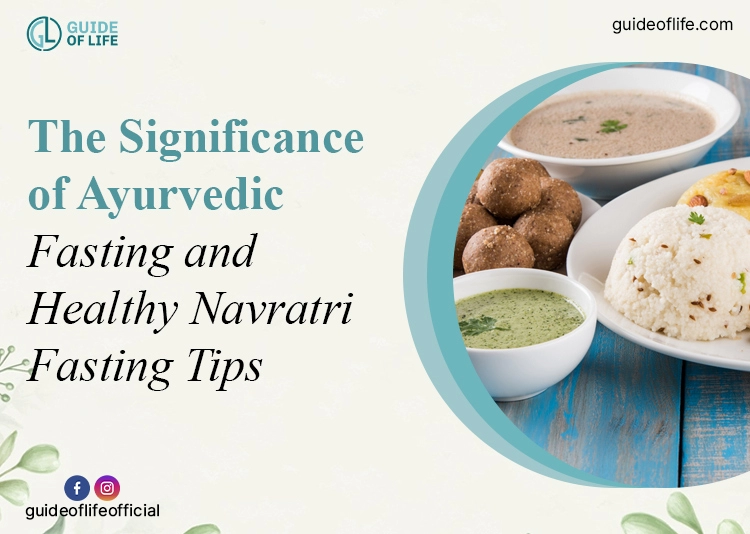The Significance of Ayurvedic and Healthy Navratri Fasting Tips

Fasting, which means not eating certain foods for a specific period, is an essential practice in Ayurveda, an ancient healing system. It's particularly significant during festivals like Navratri. Fasting isn't just about not eating; it's about giving your body a break to clean itself, refresh your mind, and boost your overall well-being. This article explores why fasting is important in Ayurveda during Navratri and offers simple tips for healthy fasting.
Read More: 10+ India's Most Incredible & Famous Religious and Cultural Festivals & Fairs
Why Fasting Matters in Ayurveda:
Ayurveda believes fasting helps balance the body's inner energies, clean the digestive system, and make you feel mentally clear. It's like hitting the reset button for your body. During Navratri, these ideas come to life as people fast for both spiritual and health reasons.
Why People Fast During Navratri:
Navratri is a festival dedicated to honoring Goddess Durga over nine nights. Fasting during this time is a way to purify your body and mind, showing respect to the goddess. It's a time for self-control, where you avoid certain foods and practices to find inner strength and grow spiritually.
Navratri 2023: What to Wear, Eat, and Offer on Each Day of the Festival
Navratri is a nine-night celebration dedicated to Goddess Durga. It's not only about fasting but also about what to wear, eat, and offer each day. This comprehensive "Guide of Life" is your key to a successful and fulfilling Navratri.
Tips for Healthy Navratri Fasting:
- Stay Hydrated: It's vital to drink plenty of water, herbal teas, and fresh fruit juices to keep yourself hydrated during fasting. Water helps cleanse your body and keeps you feeling refreshed.
- Balanced Meals: During your fasting periods, focus on a balanced diet. This includes fruits, vegetables, and grains like buckwheat and water chestnut flour. These foods provide essential nutrients and keep you feeling full.
- Protein Sources: To maintain energy levels, include dairy products like yogurt and nuts in your diet. They provide a good source of protein.
- Herbal Assistance: Ayurvedic spices like ginger, cumin, and coriander can be added to your meals to aid digestion. They also add flavor to your food.
- Portion Control: Be mindful of portion sizes. Overeating, even when you're allowed to eat, can lead to digestive discomfort. Eating in moderation is key.
- Mindful Eating: Take your time to savor your food. Eat in a peaceful and distraction-free environment. It helps improve the mind-body connection.
- Rest and Relax: Get adequate rest and consider incorporating relaxation techniques like meditation or deep breathing exercises. Reducing stress during fasting can have a positive impact on your well-being.
- Starting Light: When breaking your fast, begin with light foods like fruits and vegetable soups. These are gentle on your digestive system. Afterward, you can gradually move on to heavier meals.
Read More: 30+ Surprising Things About India for International Tourists
Navratri fasting isn't just about skipping meals; it's a guide of life, offering a unique opportunity to connect with your inner self and revitalize your body. By following these simple tips, you can make the most of this special time and experience both the spiritual and health benefits of fasting. May your Navratri be a time of self-discovery and blessings.

